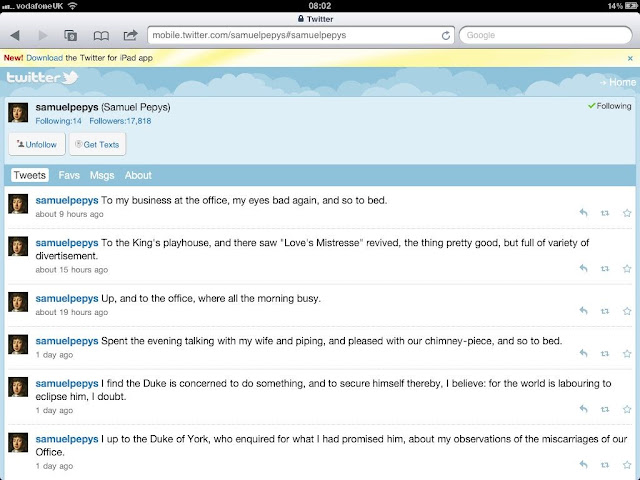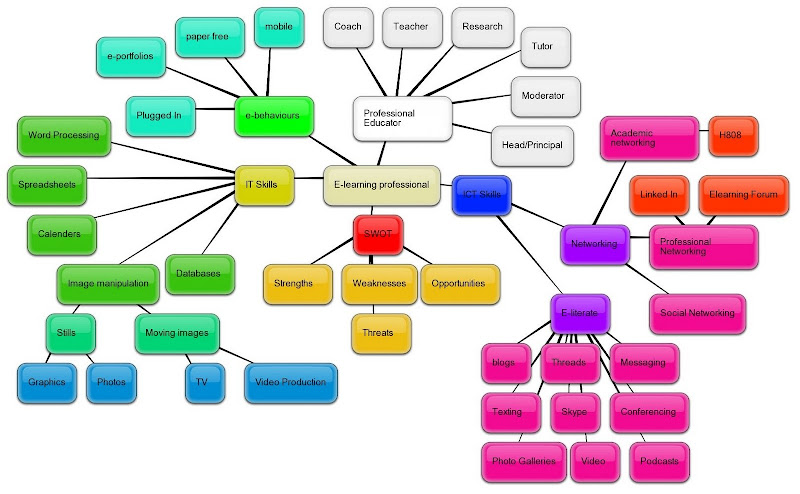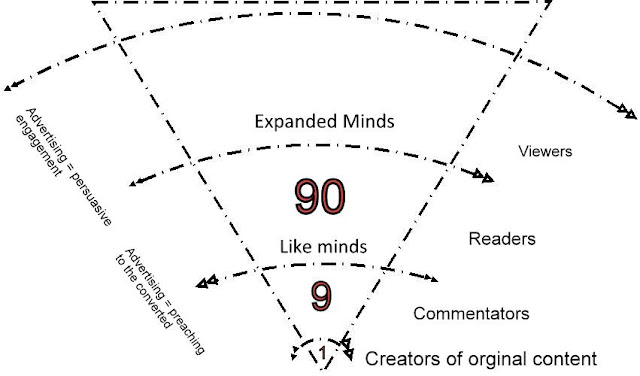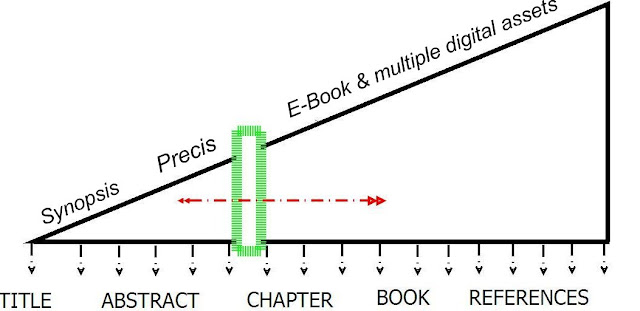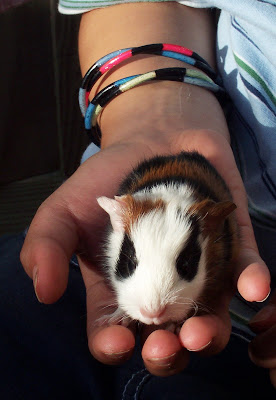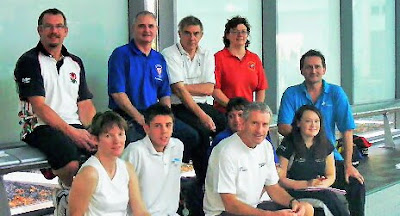Home » Posts tagged 'Voice'
Tag Archives: Voice
‘And so to bed’. Learn to blog with Samuel Pepys and this wonderful BBC dramatisation of his diaries
This first episode is a wonderful interplay between domestic and civil life, the prospect of joining the ship that will fetch the King from exile, while the ‘wench’ who works for them refuses to kill the turkey they’ve been feeding up because it’s her friend.
On the 1st of January 1660, the 26 year old Samuel Pepys decides to start keeping a diary.
How many of us have begun on the 1st of January never to get beyond the month? Or choose to pick it up again after an absence. Don’t let this be an excuse, start now. What did you have for breakfast? And if that’s too mundane what’s you solution to the debt crisis?
In the first episode Pepys is behind with his rent, he gets drunk and both he and his wife wish for a family. Pepys reflects on the great events of the 17th century but he also tells us what people ate, wore, what they did for fun, the tricks they played on each other, what they expected of marriage, and of love affairs.
In this episode some house guests play a game after dinner called ‘Getting Married’. By all accounts it sounds like a 17th century invitation to do some wife-swapping.
This BBC radio drama is on every day at 10.45 and again in the evening at 19.45. Episode 2 today.
You can follow Samuel Pepys on Twitter. You get regular 140 characters or less updates.
Read his diary, offered on a the basis of ‘on this day 350 years ago.’
Nothing’s changed much, the most important things in our life are loves, family and friends.
Our lives may touch on the politics and events of the time, they may not. Pepys got through the restoration of the King, Plague and the Fire of London.
He so often ends is entry with, ‘and so to bed’.
This reflects the typical keeper of a written diary, you tend to use the evening to catch up. I have to wonder if he had given up the diary he may have produced some children. I stopped keeping a diary on getting engaged after 16 years of writing – I had better things to do in bed than prop myself up on one and scribble secret notes into a hardback book. In any, there is no longer a best time to ‘blog,’ Twitter like you can post an entry whenever you like, as the events unfold or as a thought crosses your mind.
For radio for boring bits have been left out; it therefore reads like a novel.
Not a recommended style for these pages, but great for an external blog in WordPress (HERE), Blogger or LiveJournal. Or my favourite, Diaryland.
How, where and when do you learn?
Think about your own learning – the resources and tools you use, where and when it takes place.
Early mornings from 4.00am, weekends, mornings only ’til 10.00 or so.
Occasionally some reading in the evening.
But vicariously too, in a conversation, or going for walk, say looking at pebbles and shell washed up on the shore, or the layers of deposits in a chalk cliff.
What is your experience of being a learner?
If I’m not learning something new or building on my knowledge I am bored. I’m staggered I survived formal learning, I found the Oxford approach tedious, skipped all lectures, and relied instead on libraries and Blackwells which could between them supply every book or journal I wanted.
I failed to get far with a correspondence course on writing.
I learn best with a mixture of doing, reading/workshops and further application. I can be inspired or frustrated by my peer group. They can be a vital part of the mix, a course I did across Europe having the most refreshing mix of people.
What tools and resources do you use?
I’m slowly getting it all down to the iPad for its speed to the web, then grabbing and pasting into websites that I use as folders, eportfolios, writer’s journal as well as open blogs. I also chuck things into my email folders to collate, aggregate or check through later.
What are your views on different technologies?
I make the time to try most things and will become temporarily hooked. Currently fixated on Linkedin, WordPress blogs and Stumbleupon.
Likely to read most content as an eBook putting notes into iWriter. This is in stark contrast to printing everything off a year ago then filing it.
Forever grabbing screenshots or taking pics that go from Picasa to Picasa Web and then into blogs.
Can you think of examples where technology has made a significant difference to the way you learn?
When I started the MAODE I fell back on methods I had used during A’ levels snd quickly filled several files.
A year on and I hold the iPad in my right hand and manage a kind of touchtyping with the other. I try not to rely on harddrives and memory sticks instead putting it online, increasingly as private or password protected entries in a number of blogs hat act as themes or categories.
I would worry about learning away from The OU and finding the VLE not up to scratch or being cut-off from fellow students.
Can you think of counter examples where you had a bad experience of a particular technology?
I hate Outlook and Excel.
I both instances I feel the nerd has taken over, that my mothball of a mnd is being shoe-horned into a match-box. Worse, My unregimented, freefalling, excitable mind is being containerised, my best thoughts quaterised. It disables some minds and enables the petty. These are to me like walking in crocodiles to the school dining hall; they are overly prescriptive.
I am starting to hate Word 2011 in favour of an iPad App, iWriter which is less like trying to write while dressed as a Morris Dancer and playing the Great Whurlitzer.
Interested in the potential of computers I joined an undergraduate group in 1983 but found having to learn programming was akin to sticking stamps onto envelopes with my toes.
I used interactive DVDs successfully to learn AdobePhotoshop, FilemakerPro and Dreamweaver.
Simply a voice talking through the screen shots then getting you to do the same. The next best thing to having someone sit at your side and be your guide.
All self-paced, vital as I might prefer to do 20 intensive hours in one shot rather than nibbling at it.
What did this do to your motivation for learning?
There must be intrinsic motivation.
How did you deal with the situation?
Giving up. Which I know now was unnecessary. Thinking my mind isn’t suited to a thing instead of tackling it.
Support is vital.
Some formal training, then support at your shoulder. Time to figure it out. Understanding as you get it wrong. Those expert at these things can be unsympathetic to new comers, assuming their knowledge, rather that helping or nuturing.
Had the motivation been there could I have found my own way into the technology I do wonder.
I love the intuitive, where the learning is self-directed and incremental. Anything that needs an instruction manual or behaves like the off-side rule will put me off.
I love the Sony flip. IT just does video. Like Google ‘just does search’.
Excessive bells and whistles should be offered as Apps to add later rather than being offered up front.
Visualing metaphors I use to explain learning online:
It is like the letter a …
- A dandelion in seed (Content online)
- The solar system (Social Media Networks)
- Drops of ink in water (Content online)
Akin to my ever changing Personal Learning Environment mindmap:
- Lichen (How your knowledge grows/links)
- Ball-bearings (Dependency and interaction)
- A map (layouts, representation)
- The water-cycle (Binary code as water molecules)
- A Catherine-wheel (Spinning beautifully then falling of its stand!)
- A glider riding a thermal (Personal development)
- Delibes, Lakme. (Music as metaphor. Dance. Entanglement. Rising)
- Learning to sight read music
- Soaring and bound
- Swimming pool (coaching/training)
Each might emphasise different aspects of the process: –
- What is being learnt
- Contexts
- Audiences
Ways of expressing yourself
- Empathy
- Shared experience
What artifacts (tools, resources, etc.) are being used?
Where and when things are happening
- IPad
- Photoscspe
- Picasa
- Artpad
- Bubbl.us
- Wordle
- MRI scan
- Engestrom’s activity systems
- Google Images
- David Mcandless
Some thoughts on writing by Norman Mailer
From ‘The Spooky Art’
‘Over the years, I’ve found one rule. It is the only one I give on those occasions when I talk about writing.
It’s a simple rule
If you tell yourself you are going to be at your desk tomorrow, you are by that declaration asking your unconscious to prepare the material. You are, in effect, contracting to pick up such valuables at a given time.
Count on me
You are saying to a few forces below: I will be there to write.
The point is that you have to maintain trustworthy relations.
If you wake up in the morning with a hangover can cannot get to literary work, your unconscious, after a few such failures appear, will withdraw.’
He continues:
‘If you are ready to look upon your unconscious as a curious and semi alienated presence in yourself with whom you have to maintain decent relations – if you are able to see yourself as some sort of careless general and picture the unconscious as your often unruly cohort of troops – then, obviously, you wouldn’t dare to keep those troops out in the rain too long; certainly not at the commencement of any serious campaign. On the contrary, you make a pact: “work for me, fight for me, and I will honour and respect you.”’
He continues:
‘To repeat: The rule is that if you say to yourself you are going to write tomorrow, then it doesn’t matter how badly you’re hungover or how promising is a sudden invitation in the morning to do something more enjoyable. No, you go in dutifully, slavishly, and you work.
This injunction is wholly anti-romantic in spirit
But if you subject yourself to this impost upon yourself, this diktat to be dependable, then after a period of time – it an take weeks, or more – the unconscious, nursing its disappointments, may begin to trust you again.’
He continues:
‘On the other hand, you can sometimes say to yourself, “I’m not going to work tomorrow,” and the unconscious may even by now be close enough in accord not to flood your mind with brilliant and all-too-perishable material.
That is also important
Because in the course of going out and having the lively day and night you’re entitled too, you don’t want to keep having ideas about the book you’re on. Indeed, if you are able on your day off to avoid the unpleasant condition of being swarmed with thoughts about a work-in-progress when there is no pen in your hand, then you’ve arrived at one of the disciplines of a real writer. ‘
He wraps it up:
‘The rule in capsule
If you fail to show up in the morning after you vowed that you would be at your desk as you went to sleep last night, then you will walk around with ants in your brain.
Rule of thumb
Restlessness of mind can be measured by the number of promises that remain unkempt.’
Why I recommend Linkedin and WordPress above all others but fear for Twitter as excessive twaddle ruins its potential
It isn’t for lack of overwhelming, immersive and engaging content online, especially ‘how to’ movies and ‘clips’ in YouTube, its how you as an individual copes with this inexhaustible choice. Armed with an 3G tablet and sim card will we find we are learning more on the fly, taking it with us, much of it free, some of it guided and paid for?
Taking advantage of participation (Seely-Brown), learning on the periphery (Seely-Brown), vicarious learning (Cox) and if you can get your tongue around it ‘serendipitous learning.’ (me I think).
I’m finding that 18 months in, and having really started this gig in 1998 when from the agency end we were migrating interactive DVD based learning to the Web, that I of necessity must balance the tools I can play (musical instrument metaphor), compared to those I play with (sandpit, training pool metaphor) … and I suppose those ones I am obliged to master whether I like it or not (prescriptive tools for work and study – in at the deep end metaphor?!).
Conole (2011) invites us to use ‘metaphors for meaning making’. I always have, often visualising these metaphors. Just search this diary on ‘Metaphor’ to see what comes up. Also try words or phrases such as ‘traffic light’, ‘nurture’, ‘gardening’, ‘swimming’, ‘spheres of influence’, ‘hub’, ‘serendipity’ as well as ‘water’ and ‘water-cycle’.
I therefore offer the following:
Linkedin (For Forums, like this, in groups and networks)
WordPress (for blogging, sharing, wiki like affordances, training, updates)
iPad (or Tablet) (Whilst PCs and Laptops have considerable power and versatility
I also suggest that we all take a close interest in Google +1 which may replace all of these.
Twitter (only for niche/target live discussions or quasi-synchronous conversations.
The rest of it is ‘Twitter Twaddle’ – spam of the worst kind being pumped out by pre-assigned links as CoTweets or random disconnected thoughts. This is killing some forums where RSS feeds of this stuff overwhelms any chance of a conversation).
I’ve seen two Forums killed, temporarily I hope, by this stuff, the largest victim being the Oxford University Linkedin Alumni group. I believe it is simply the case of a new moderator niavely permitting Twitter feeds in on a discussion, ie. having the conversations between 30 disrupted by the disconnected chattering of 300.
Where’s education in technology terms compared to the car?
I like to think e-learning at The OU is the Space Shuttle at least. (Though far from being put out of commission). As providers of distance learning The OU has been ‘in the air’ since launch in 1969 and in Cyberspace for the last decade. Where lies Higher Education from other institutions? The Ford Cosworth with go faster stripes? The Bentley? The 1910 Beeston Humber. And what about primary and seconday education.
The mind has been set thinking by Grainne Conole once more. With her in the driving seat for the next week we’ve already notice the volume and variety of work. This little task was supposed to take half an hour. It has been a lively three hours thus far from me and I;m yet to join conversastions with fellow students.
In chapter two, ‘Stepping over the edge: the implications of new technologies for education’ Grainne Conole argues that a number of catalytic triggers can be identified in terms of the impact of technology on organisations.
For the Masters in Open and Distance Education (MAODE) Module H800 we are asked:
Is this your experience?
That the catalytic triggers themselves influence the outcome?
If a problem or problems are the catalyst then yes the nature of and the implementation itself ought to be in direct correlation. However it is often the case that technologies, indeed innovations, go looking for a problem to fix or that the possibilities of a technology cast a shadow on current practice oblinging change.
Edison did it both ways, solving problems but also trying to foist gadgets on people, both routes having to find their way to success or failure.
This discounts the impact of people, personalities or champions, CEOs and business owners who will carry the day sticking with or tearing out old technologies seemingly on a whim to replace something.
Can you think of examples of when technologies have had a radical impact on your own practice – either personally or professionally?
Over 25 years I have seen TV production change from big teams with office support to teams of one doing it all themselves, from the introduction of wordprocessing and spreadsheets, to the shift from tape or film to digital, from unionised crews and roles in both the UK and France, to a kind of D.I.Y. TV. (Though with one of my business manifestations ‘Shoestring Productions’ you could say I’m used to the micro-production).
What do you think are some of the key barriers to the uptake of new technologies?
- Cost
- People
- Time
- Disruption
- Training
- Transition
From your own experience, can you think of change processes you have been involved with – a new technical system, restructuring of your department, a change in job functionality?
There’s a new phone system going in now where the call comes through the PC and calls are taken using a headset or handset. How was the change process managed?
A hint at what was coming, followed by decisions on the choices regarding the handset or headset then a whirlwind of activity on coming in Monday morning to find new phones that are so light to handle it’s as if they’re made of card. A team of eager and helpful people, some strangers, some regulars from the IT department, buzzed about. There has yet to be training on the newsoftware, but I suspect that it is intuative and ‘just happens.’
(A few hours later my laptop starts talking to me. I realise it is a supplier. I hastlily plug in the headset. Moments later, by default I find through OUTLOOK I have called someone and leave a message).
Intuitive? Seems so.
What was the impact on individuals?
Acceptance, interest, more for our fingers to do, a step away from having video, an abundance of technical possibility that will trip us up. I’m starting to wonder if having filled our day with kit that means we are on call every moment of the day, carrying the office about with us and now doing two things simultaneously, taking calls while completing spreadsheets, for example.
What was the impact on day-to-day operations?
In this instance it has been fairly seemless, however, we were temporarily tripped up with the wi-fi going down and calls going to the wrong phones.
Are calls, like emails, going to be recorded and logged? Apparently.
Thus adding to the volume of stuff that is largely email? (no wonder email is on the wane)
As Mayes, Puttnam and others have argued, education seems to have been slower than other industries in embracing the potential of technologies.
(The OU Chancellor Lord Puttnam felt that while we’ve seen great advances in the car, much education delivery is stuck in the past. He doesn’t say where, though I’d love to put the question to Linkedin, ‘If the education you had was a car, what kind of car would it be?’
Can you think of reasons why this might be the case?
We’re dealing with cohorts of people coming through the gates (whether virtual or real, online or campus based learning) not components from China to be assembled.
Education has a history of making radical shifts in both practice and use of technology and getting it wrong, which would impact on a generation, year group or cohort going through. I am struck how much that is ‘teaching’ is a highly human activity, that between student and teacher, not simply between people and course materials.
The person who can learn in isolation is the exception.
Whilst e-learning promises so much, my fear is that a significant promise perceived by some is to make money. Whilst accepting the need for funding, education should be run as a business too, the idea that a ‘quick buck’ can be made by sticking modules online and taking payment up front will lead to many disappointments and poor retention.
Old ways, even if dressed in new clothes, such as pastorlal care and one-to-one guidance is just as necessary, perhaps more so for part-time and distance learners who have significantly more impacts on their day than the ‘captive’ campus-based student.
Is there anything significantly different about the nature or culture of education that has had an impact?
Hopefully the globalisation of education, made possible by the Internet and suppliers able to serve international audiences, the Western model of education will be diluted, infused with other practices and improved as a consequence.
Despite Web 2.0 and its promise of participation and experiential learning we are still bound often to practices of the last 500 years; I would say that I am largely ‘reading’ for a degree, what is more, the assessment process is equally anachronistic, as it is based on assignments and papers being submitted so that markers can do just as they would have done had I been closed into an examination hall for 3 hours each time.
Do you think this is also true for Web 2.0 technologies?
We do as we have always done and become habitualised by it. Taking notes, writing essays, revision and testing follows an old pattern that never suited or was appropriate to everyone. Web 2.0 allows you to study with a crowd, to turn to fellow students, alumni, anyone online (even different institutions where they are putting content out in Open Form). Those of us already embedded in these technologies and practices expect to see it as we study and work, to have conversations ‘on the record’ all the time, to capture thoughts and ideas from the digital wind and allocate them a place in our burgeoning knowledge banks.
Do you think that the hype about Web 2.0 tools is justified?
Neither hype, nor those who decry the potential should be given credence unless one is used to balance the other. All that should count is the empircal evidence that in a snapshot of time states the positon. From such studies, repeated, and longitudinal, it becomes feasible that we can see trends and plan/act accordingly.
Do you think there is any evidence yet that Web 2.0 tools are having a significant and increasing impact on how teachers teach and learners learn?
Very much so. At times, from my experience, course materials are the jumping off spot, a catalyst and guide rather than an absolute. I will often seek out what an author thinks or says now, rather than relying on ‘frozen’ papers and texts that were assembled for a virtual box of books some years before. If conversations dry up or don’t pick up in tutor or other groups I will decamp to a subject specific social network group.
Are we on another ‘groundhog day’ cycle or is there something significantly different this time?
There is something different that in some respects is a huge loop back thousands of years where like-minds gathered or those eager to learn would listen in then join in. This is made possible by the global reach of the Internet and increasingly affordable, reliable an easy to use kit.
If your conclusion is broadly that each technology is just another cycle of change, with promises not matching reality, is the perspective any different if the lens on this is over a longer time frame?
No and yes. What matters is the perspective of the person behind the lens, their beliefs, knowledge, experience, attitudes, ambitions, influence, power and voice. In other words, has there been a significant change in practice when you take a longer-term, cumulative account of a range of technologies?
It depends, the car caused rapid change, especially for those hit by one.
The Internet feels more like the air we breathe, certainly in Western and Developed Nations (if such distinctions even have any validity)
i.e. Incidents can’t be so readily isolated.
Other commentators
Every Day is a School Day
REFERENCE
Conole, G. (2011) ‘Stepping over the edge: the implications of new technologies for education’ in Lee, M.J.W. and McLoughlin, C. (eds) Web 2.0-based E-learning: Applying Social Informatics for Tertiary Teaching, Hershey
When does a diary become a blog and is it diminished as a result?
In the Guardian Review, March 2003, William Boyd discussed the journal
‘There are many sort of journal: journals written with both eyes fixed firmly on posterity and other that were designed never to be read by anyone but the writer. There are journals content to tabulate the banal and humdrum details of ordinary lives and journals meant expressly to function as a witness to momentous events of history. There are journals that act as erotic stimulants or a psychoanalytic crutch and there are journals designed simply to function as an aide-memoire, perhaps as a rough draft for a later, more polished account of life and so on. But buried within these varying ambitions and motivations is a common factor that unites all these endeavours – the aspiration to be honest, to tell the truth. The implication being that in the privacy of this personal record, things will be said and observations made that couldn’t or wouldn’t be uttered in a more public forum. Hence the adjective “intimate” so often appended to the noun “journal”. The idea of secret diaries, of intimate journals, somehow goes to the core of this literary form: there is a default-setting of intimacy – of confession – in the private record of a life that not only encourages the writing of journals but also explains their fascination to the reader.’ William Boyd
I’ve written here often enough about why we blog.
I’d love to hear what you think. Why do we do it? The ‘we’ being the obsessive journal writers. I’m trying to gather ‘you’ (vous i.e. plural) into this debate.
William Boyd’s to Ten Journal Keepers
James Boswell http://www.jamesboswell.info/literature/boswells-london-journal-1762-1763
Keith Vaughan http://en.wikipedia.org/wiki/Keith_Vaughan
Paul Klee. http://en.wikiquote.org/wiki/Paul_Klee
Evelyn Waugh http://evelynwaughsociety.org/about-evelyn-waugh/diaries-letters/
Gilbert White http://www.infobritain.co.uk/gilbert_white_biography_and_visits.htm
Cyrical Connolly http://www.brainyquote.com/quotes/authors/c/cyril_connolly.html
Virginia Woof http://www.woolfonline.com/?q=diaries/vw/overview
Edmund Wilson http://nymag.com/nymetro/arts/books/reviews/12446/
Valery Larbaud http://m.eb.com/topic/330472/Valery-Nicolas-Larbaud
Katherine Mansfield http://www.tusitala.org.uk/blog/katherine-mansfield-the-journal-and-the-collected-stories/
‘It mimics and reflects our own wayward passage through time like no other writing form.’
‘You have to be dead to escape the various charges of vanity, of special-pleading, of creeping amour-propre.’
My diary http://en.wikipedia.org/wiki/Diary
My record.
My journal.
My aide-memoire.
My lies.
My ties.
My deleterious exploits.
I’ve been at for thirty years; that isn’t a boast, it’s an confession. What Boyd says is true too, there’s no value in it until I die.
I wonder why? Often. But I do it anyway.
To save events in family life and to capture memories that may serve some literary purpose.
In the past I thought I might achieve something, it would become the record of a successful anything.
I can’t even do this properly.
What next?
I have details from estate agents (realtors) in France; I fancy a change. Different language, different culture, better weather – I should know. I’ve lived and loved there.
On vera. Il faut …
And the words fail me, I’ve not spoken French for five years and not written it for a decade.
Why keep a diary then put it online?
A diary is many things
‘Maketh up a quote at ye beginning of thy book; it will make people think thou art clever.’
Christopher Marlowe ‘The Obscure Tragedie’ Act II, Scene ii.
The following comes from a seminal book on diary keeping by Tristine Rainer.
It is as apt if you are writing a blog. Here are some thoughts
Some of this thinking can be brought up to date in the context of keeping a diary online; the essential principles remain the same.
A dairy is many things:
‘Everything and anything goes. You cannot do it wrong. There are no mistakes. At any time you can change your point of view, your style, your book, the pen you write with, the direction you write on the pages, the language in which you write, the subjects you include, or the audience you write to. You can misspell, write ungrammatically, enter incorrect dates, exaggerate, curse, pray, write poetically, eloquently, angrily, lovingly. You can past in photographs, newspaper clippings, cancelled checks, letters, quotes, drawings, doodles, dried flowers, business cards, or labels. You can write on lined paper or blank paper, violet paper or yellow, expensive bond or newsprint.’
Tristine Rainer, ‘The New Diary’ 1976.
‘Flow, spontaneity and intuition are the key words. You don’t have to plan what you are going to do. You discover what you have done once you have set it down.’ Tristine Rainer.
Write Spontaneously
Write quickly so that you don’t know what will come next. How the unexpected can happen. Surprise yourself.
Write Honestly
Be open about what you really feel. Few diaries actually lie to themselves in a dairy, but many out of shyness with themselves avoid writing about the most intimate aspects of a situation.
Write Deeply
Anais Nin, disappointed with her childhood diaries, developed the practice of sitting quietly for a few minutes before beginning to write. She would close her eyes and allow the most important incident or feeling of the day or of the period of time since she last wrote to surface in her mind. That incident or feeling became her first sentence.
Write Correctly
Expressive language is not a science. There are no rules. You are writing for yourself, so self-expression is the key. Test the range of your natural voice – it will develop. Errors are part of the form of the diary, as they are part of life.
Choose your audience
Your best audience is your future self. In ten years time you won’t remember the situation unless you capture all its sensual vitality now.
Value contradictions
In time they will develop towards a larger truth; leave them in.
‘Some diarists find when they go several weeks without writing they begin to feel off balance and take it as a signal that they are avoiding the inner self.’
Those of us who keep a diary regularly are stuck with it; whether it appears online, and which bits of appear online is another matter.
‘We taught the diary as an exercise in creative will; as an exercise in synthesis; as a means to create a world according to our wishes, not those of others; as a means of creating the self, of giving birth to ourselves.’
Anais Nin, December 1976.
There’s more to follow from Tristine Rainer on basic diary devices and special techniques.
P.S. The Marlowe quote is John O’Farrel’s invention and appears in ‘I blame the scapegoats.’

